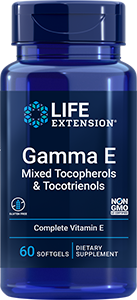| In light of a recent study published in the Archives of Internal Medicine which found vitamin D inadequacy in 75 percent of Americans, University of Missouri College of Environmental Sciences assistant professor Catherine A. Peterson announced the finding of research conducted at the University's Department of Nutritional Sciences which correlated low vitamin D levels with an increased marker of inflammation. The study was described in the July, 2008 issue of the Journal of Inflammation. The study included 69 healthy women, aged 25 to 82, classified as being high or low in vitamin D based on ultraviolet-B exposure. Blood samples were analyzed for serum 25-hydroxyvitamin D, hormone levels, and inflammation markers. Not surprisingly, mean serum 25-hydroxyvitamin D levels were significantly greater in those with increased sun exposure compared with those in the low D group. Dr Peterson, along with colleague Mary E Hefferman, found that the inflammatory marker tumor necrosis factor-alpha (TNF-alpha) averaged 0.79 picograms per milliliter (pg/mL) in the high vitamin D group and 1.22 pg/mL among those categorized as low in the vitamin. Higher serum 25-hydroxyvitamin D levels were also correlated with lower TNF-alpha levels. The relationship remained after adjusting the analysis for other factors. In their discussion of the findings, the authors write that although it is difficult to discern vitamin D's mechanism, a previous study found that vitamin D down-regulated TNF-alpha-associated genes. The study is the first to determine an inverse association between TNF-alpha and vitamin D levels in a healthy population. The finding could help explain the protective association found for vitamin D against inflammatory diseases such as heart disease and rheumatoid arthritis. "The findings reveal that low vitamin D levels negatively impact inflammation and immune response, even in healthy women," Dr Peterson commented. "Increased inflammation normally is found in people with obesity or chronic diseases; a small decrease in vitamin D levels may aggravate symptoms in people who are sick." "To improve vitamin D status and achieve its related health benefits, most people should get at least 1000 IU of vitamin D per day," she noted. "Only a few foods contain vitamin D naturally, such as fatty fish; other sources are dietary supplements and vitamin-D-fortified foods, including milk and orange juice." "More studies are needed to fully characterize the relationship between vitamin D and TNF-alpha; but if proven effective, vitamin D therapy may show promise as adjunct to anti-TNF therapy in inflammatory disease states," the authors concluded. | 
















